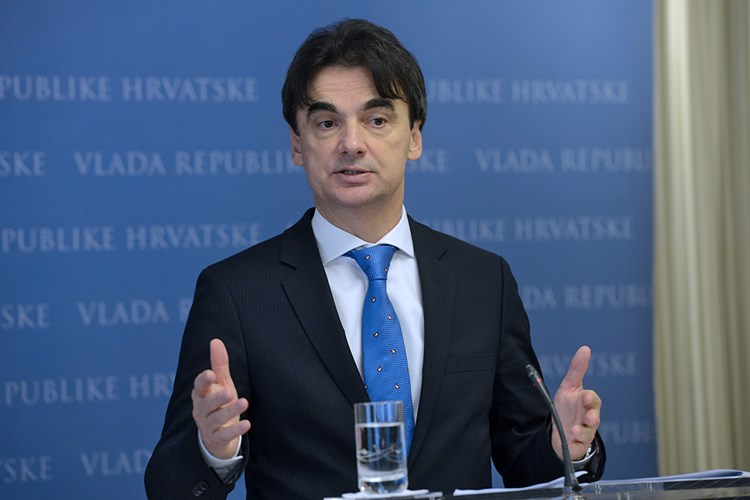- Published: 17.06.2015.
Deputy Prime Minister Grcic says positive trends reflecting on budget deficit
Deputy Prime Minister Grcic said that there was a growing number of indicators of positive economic trends in the country which also reflected on the budget deficit which in the first five months of this year dropped by more than 3 billion kuna compared to the same period of last year
"The budget deficit in the first five months was more than 3 billion kuna lower than at the same period of last year, which is roughly one quarter of the total deficit planned for this year... It is a result of a lower expenditure but primarily of higher revenues, which is especially encouraging because revenues are always connected with greater economic activity," Grcic said while answering reporters' questions at a conference on EU funds.
One of those indicators is an increase in employment as evidenced by Eurostat data which show that Croatia, together with Estonia, Hungary and Spain saw an annual increase in the number of employed persons in the first quarter of this year.
"Many did not expect employment to start recovering that soon. This is the second quarter to see an employment increase, which for citizens is maybe the most important effect of the recession having been overcome... the government's efforts are ultimately focused on economic recovery to secure new jobs and employment," said Grcic.
Grcic underlined that information about a 7.5% increase in industrial turnover in April had gone rather unnoticed and that it meant additional growth in consumption.
"Industrial stocks are empty and I hope it will have an effect on the further growth of industrial production, and we expect figures on that in about ten days," said Grcic.
He added, however, that one should be careful when interpreting data indicating a lower budget deficit "because you pay some bills sooner, some later and we are yet to see how the situation will develop."
Actual Individual Consumption (AIC) per capita expressed in Purchasing Power Standards in Croatia in 2014 was as much as 41% below the EU average, the same as GDP per capita, according to preliminary Eurostat estimates.
Commenting on those figures, Grcic said that one should take into account the fact that the statistical office compared Croatia, which had been an EU member for two years, and other 'new' members which had been in the EU for seven or 10 years and which had benefitted in that period from export and investment growth and EU funds.
"They entered the EU ten or seven years before Croatia and they have made the most of three things - a huge increase in exports owing to EU membership, an increase in foreign direct investments and... EU funds. Over a period of seven years, EU funds alone contributed to cumulative GDP growth by more than 20%... The fact that we joined the EU seven and ten years later respectively has evidently reflected on our citizens' living standards," Grcic said, adding that the country therefore needed faster economic growth.
(Text: Hina)
